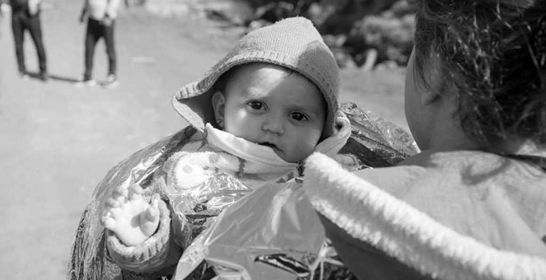
Don’t miss out on new resources
Please join us as we – together with our partners – chart new paths toward a healthier world. Sign up for our newsletter today.

Breastfeeding is recognized as one of the safest ways to prevent children in conflict settings from malnourishment and infectious diseases.
Yet according to research from the Center of Excellence in Women and Child Health, The Aga Khan University, Pakistan and the Centre for Global Child Health, The Hospital for Sick Children, Toronto, Canada, conflict severely disrupts the very prevention these vulnerable children need most.
Their findings have just been published by BMJ Open in this open access article: ‘Systematic review of infant and young child feeding practices in conflict areas: what the evidence advocates’.
A review of 56 studies conducted in areas impacted by armed conflict around the world, over 39 years, shows:
Family displacement, stress, maternal malnourishment, lack of awareness and unavailability of trained healthcare professionals, death of male family members, community misconceptions about breastfeeding and the distribution of breastmilk substitutes all contributed to the suboptimal infant and young child feeding (IYCF) practices.
Nevertheless, the researchers also identified effective strategies to overcome these barriers. And finally, they highlight how disseminating, monitoring, implementing practical guidelines and innovations could help scale up breastfeeding and other IYCF practices.
This review was conducted with support from FLRF.
Subscribe to our newsletter to keep current on this and related news.